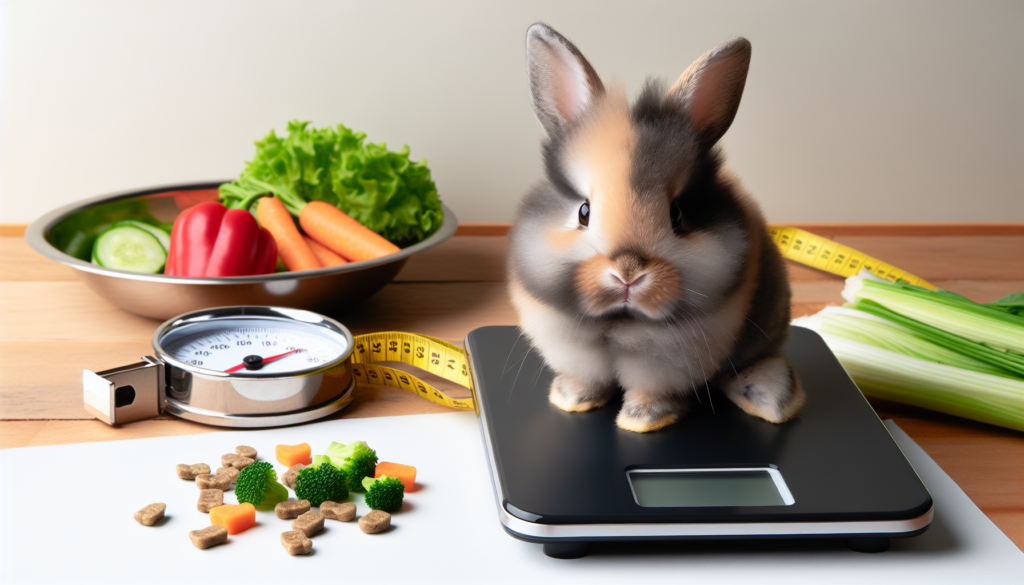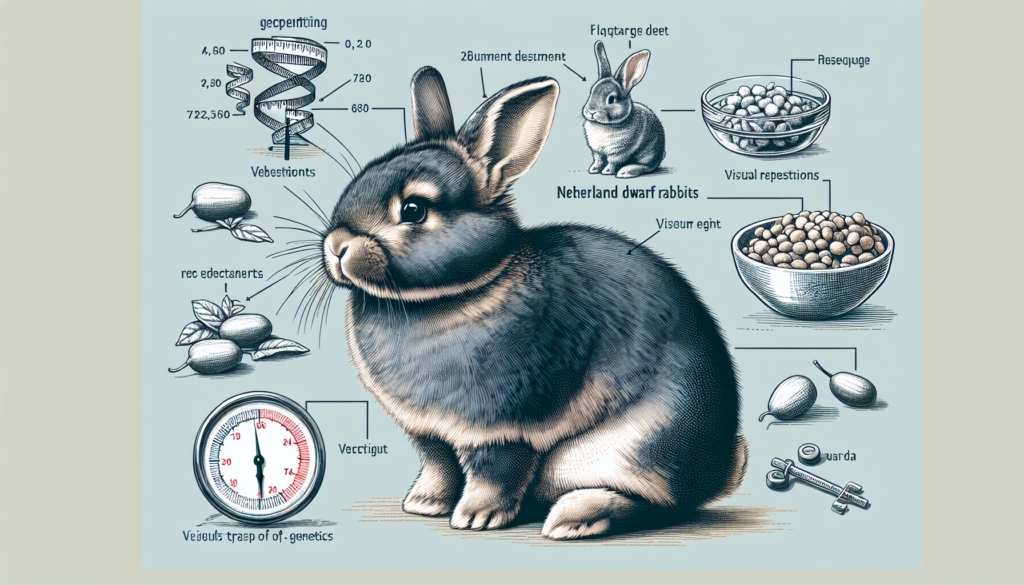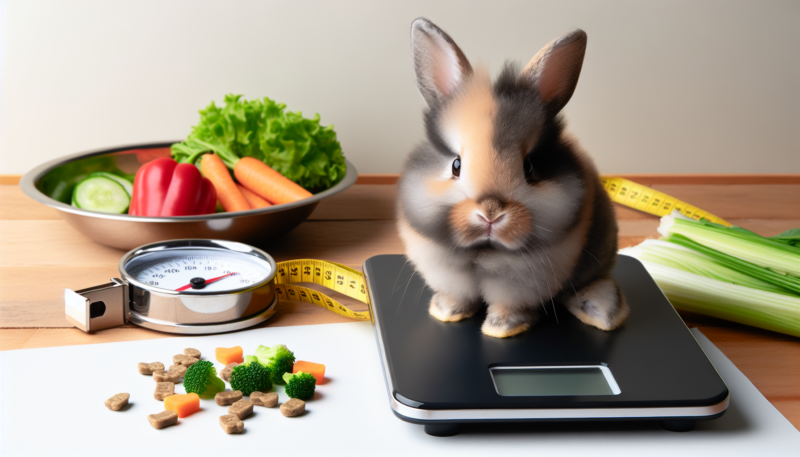So you’re curious about the size of Netherland Dwarfs, huh? Well, wonder no more! This article is here to give you all the answers you need. When it comes to these adorable little rabbits, their name might give you a clue, but you’ll be surprised to learn just how tiny they truly are. From their petite bodies to their fluffy tails, we’ll explore the world of Netherland Dwarfs and reveal just how big they get. Get ready to be amazed by these pint-sized cuties!
Physical Characteristics
Size
One of the most charming aspects of Netherland Dwarf rabbits is their petite size. As their name suggests, these bunnies are known for being particularly small. Adults typically reach a maximum size of 2.5 pounds (1.1 kilograms) when fully grown, making them one of the smallest rabbit breeds in the world. This miniature stature adds to their appeal and makes them even more endearing companions.
Weight
When it comes to weight, Netherland Dwarfs are incredibly light. As mentioned earlier, the average adult Netherland Dwarf weighs around 2.5 pounds (1.1 kilograms). However, it’s important to note that individual rabbits may vary slightly in weight due to factors such as genetics, diet, and overall health. Regardless, their lightweight nature makes them easy to handle and carry, allowing you to enjoy cuddles with your furry friend without straining.
Body Structure
In addition to their small size, Netherland Dwarf rabbits are well-known for their stocky and compact body structure. They have a rounded, well-muscled physique, which contributes to their overall cuteness. Their heads are relatively large compared to their body size, and their ears are short and upright. These unique physical characteristics further distinguish them from other rabbit breeds and add to their irresistible charm.
Growth and Development
Birth Size
When Netherland Dwarf rabbits are born, they are incredibly tiny, weighing just a few ounces. At birth, their small size makes them vulnerable and dependent on their mother for care and nourishment. However, despite their initial small stature, they quickly begin to grow and develop at a remarkable rate.
Growth Rate
Netherland Dwarf rabbits have a rapid growth rate during their early stages of life. Within just a few weeks, they start to noticeably increase in size and weight. Their bodies grow proportionally, with their round shapes becoming more prominent as they mature. It is truly mesmerizing to witness how quickly these adorable bunnies transform from fragile newborns into sturdy and energetic companions.
Maturity
Netherland Dwarf rabbits typically reach maturity at around 6 to 8 months of age. By this time, they have reached their full adult size and weight. However, it’s important to remember that individual rabbits may mature at slightly different rates. It is essential to provide them with a balanced diet, regular exercise, and proper care to ensure healthy growth and development as they transition into adulthood.

Factors Affecting Size
Genetics
Genetics play a significant role in determining the size of Netherland Dwarf rabbits. Breeders carefully select rabbits with desirable genetic traits to ensure the offspring possess the characteristic small size and distinct body structure. By selectively breeding rabbits with specific genes, responsible breeders help maintain the breed standard and optimize their petite size.
Nutrition
Proper nutrition is vital in influencing the ultimate size of Netherland Dwarf rabbits. Providing a well-balanced diet that includes a variety of fresh hay, high-quality pellets, fresh vegetables, and limited treats is essential. A well-nourished rabbit will have the necessary nutrients for healthy growth and development. However, it is crucial to monitor their portion sizes to prevent overfeeding, which can lead to weight gain and potential health issues.
Exercise
Regular exercise also plays a role in the size of Netherland Dwarf rabbits. Daily physical activity helps maintain their overall health and prevents obesity. Providing them with sufficient space to roam and explore, either indoors or outdoors under supervised conditions, allows them to exercise their muscles and burn off excess energy. Engaging in playtime and providing them with toys and activities further promotes exercise and mental stimulation.
Comparison to Other Rabbit Breeds
Dwarf vs. Standard Breeds
When comparing Netherland Dwarf rabbits with standard breeds, the size difference is instantly apparent. Standard breeds can weigh up to 10 pounds (4.5 kilograms) or more, which is significantly larger than the petite and lightweight Netherland Dwarfs. The contrast between these two types of rabbits emphasizes the unique charm and appeal of Netherland Dwarfs, making them an ideal choice for individuals looking for a compact and cuddly companion.
Dwarf vs. Miniature Breeds
Although both Dwarf and Miniature breeds are small in size, they do have some differences. Netherland Dwarfs generally have shorter ears and a stockier physique compared to Miniature breeds. Additionally, Netherland Dwarfs are one of the smallest rabbit breeds overall, often weighing less than 3 pounds (1.4 kilograms). Miniature breeds, on the other hand, can range in weight from 2.5 to 6.5 pounds (1.1 to 2.9 kilograms). These subtle distinctions make Netherland Dwarfs even more unique and desirable for those seeking an ultra-compact companion.
Dwarf vs. Lionhead Breeds
Netherland Dwarf rabbits also differ from Lionhead breeds in several aspects. While both breeds share a small size, Lionhead rabbits have a distinctive feature: a prominent “mane” of longer fur around their head, reminiscent of a lion’s mane. In contrast, Netherland Dwarfs have short fur and a smooth coat. Additionally, Lionhead breeds can grow slightly larger, with adult weights ranging from 2.5 to 4 pounds (1.1 to 1.8 kilograms). The contrasting appearances and characteristics of these two breeds make each equally captivating in their own way.

Size Standards and Variations
American Rabbit Breeders Association (ARBA) Standards
The American Rabbit Breeders Association (ARBA) has established specific size standards for Netherland Dwarf rabbits. According to these standards, a fully grown Netherland Dwarf should not exceed 2.5 pounds (1.1 kilograms) in weight. Adhering to these standards enables breeders to maintain the unique characteristics of the breed and ensures consistency throughout the Netherland Dwarf population.
Size Variations within the Breed
While the ARBA sets guidelines for size, slight variations can occur within the Netherland Dwarf breed. Factors such as genetics, diet, and individual development can influence the final size of a Netherland Dwarf rabbit. Some rabbits may be slightly smaller or larger than the average, but as long as they fall within the designated weight range, they are still considered true representatives of the breed. These natural variations add charm and uniqueness to each individual rabbit.
Size Expectations for Different Ages
Newborn
Netherland Dwarf rabbits are incredibly small when they are first born. At birth, they weigh just a few ounces and are roughly the size of a palm. Their tiny stature is awe-inspiring and heartwarming, illustrating the vulnerability and dependence they have on their mother during these early stages of life.
Baby
During their first few weeks, Netherland Dwarf rabbits grow rapidly. Their size and weight increase notably, and their bodies start to take shape. Baby Netherland Dwarfs are full of energy, curiosity, and playfulness, making them a joy to watch as they explore their surroundings and learn about the world around them.
Young Adult
By the time Netherland Dwarf rabbits reach around 6 to 8 months of age, they are considered young adults. At this stage, they have reached their full adult size and weight. Their bodies have filled out, and their adorable features are fully developed. Young adult Netherland Dwarfs are active, sociable, and require the proper care to support their ongoing growth and healthy adult life.
Adult
As adults, Netherland Dwarf rabbits reach their full potential in terms of size and weight. Generally, they maintain the same miniature size that characterized them as young adults. The compact and well-proportioned bodies of adult Netherland Dwarfs create a delightful visual appeal, making them the center of attention wherever they go. Their small size allows them to comfortably fit into small living spaces without sacrificing their happiness and well-being.
Senior
As Netherland Dwarf rabbits enter their senior years, it’s important to continue providing them with proper care to ensure a healthy and comfortable life. While their small size remains constant, their bodies may experience some natural aging processes. Senior Netherland Dwarfs may require special attention in terms of diet, exercise, and veterinary care to accommodate any age-related changes and maintain their overall well-being.
Health Considerations
Dwarfism-Related Health Issues
Due to their characteristic small size, Netherland Dwarf rabbits are prone to certain health issues associated with dwarfism. These rabbits possess a genetic dwarfism mutation that affects the size of their bones and internal organs. As a result, they are more susceptible to dental problems, as their small jaws may crowd their teeth. Additionally, they may be more prone to respiratory, digestive, and skeletal issues. Regular veterinary check-ups and preventive care measures help ensure their health and address any potential concerns.
Obesity-Related Health Issues
While Netherland Dwarfs may be small, they are not immune to weight-related health issues. Obesity can pose significant health risks for rabbits, including diabetes, joint problems, and decreased lifespan. It’s essential to provide a balanced diet and control portion sizes to prevent overfeeding, which can lead to weight gain. Regular exercise and mental stimulation should also be incorporated into their routine to keep them active and maintain a healthy weight.
Regular Check-ups and Care
To keep your Netherland Dwarf rabbit in optimal health, regular veterinary check-ups are highly recommended. A skilled veterinarian can monitor their growth, provide necessary vaccinations, and address any health concerns promptly. Routine examinations also allow for dental care, as their small jaw structure may require attention to prevent dental problems. Regular grooming, including brushing their soft fur and keeping their nails trimmed, is also crucial for maintaining their overall well-being.
Feeding and Nutrition
Balanced Diet
A balanced diet is essential to ensure the proper growth and overall health of your Netherland Dwarf rabbit. Their diet should primarily consist of fresh hay, which aids in digestion and helps wear down their teeth. High-quality rabbit pellets provide essential nutrients, and fresh vegetables offer additional vitamins and minerals. It’s important to introduce new foods gradually to avoid digestive upset and monitor their overall diet to maintain the appropriate balance.
Portion Control
Proper portion control is crucial to prevent overfeeding and subsequent weight gain in Netherland Dwarf rabbits. Following the recommended feeding guidelines, based on their age, weight, and activity level, ensures they receive the appropriate amount of food without excess calories. Portion control helps maintain their compact size and alleviate the risk of obesity-related health issues. Consult with a veterinarian to determine the ideal portion size for your individual rabbit.
Supplements
In addition to a balanced diet, certain supplements may be beneficial for maintaining the health of your Netherland Dwarf rabbit. Providing a constant supply of fresh water is essential for hydration. However, additional supplements, such as vitamin C, may be necessary, especially if your rabbit’s diet lacks sufficient naturally occurring vitamin C sources. Consulting with a veterinarian can help determine if any specific supplements are required to support your rabbit’s nutritional needs.
Exercise and Enrichment
Indoor vs. Outdoor Exercise
Netherland Dwarf rabbits can engage in exercise both indoors and outdoors, depending on their living environment. Indoor exercise options include playpens, tunnels, and designated play areas. Outdoor exercise can be facilitated through supervised playtime in a secure and enclosed backyard or a rabbit-safe outdoor enclosure. Both indoor and outdoor exercise allows your rabbit to burn off excess energy, maintain physical health, and indulge in their natural instincts.
Toys and Activities
Providing toys and activities for your Netherland Dwarf rabbit is essential for their physical and mental well-being. Toys such as tunnels, chew toys, and puzzle feeders help stimulate their natural instincts. Opportunities for digging, jumping, and exploring are equally important. Rotating toys and introducing new ones periodically prevents boredom and keeps them engaged. Spending quality time playing with and providing enrichment for your rabbit strengthens the bond between you and enhances their overall happiness.
Caring for Netherland Dwarf Rabbits
Housing
Creating a suitable living environment is crucial for the well-being of your Netherland Dwarf rabbit. A spacious and well-ventilated cage or hutch with adequate room for exercise is essential. Provide a cozy, clean bedding area for comfort. The cage should be large enough for your rabbit to stretch, hop, and play comfortably. Additionally, offering a safe and supervised outdoor play area, or allowing indoor free-roaming time, ensures they receive sufficient physical activity and mental stimulation.
Grooming
Regular grooming is necessary to keep your Netherland Dwarf rabbit looking and feeling their best. Brushing their soft fur helps remove loose hair and prevents matting. Pay special attention to their ears, as their shorter ear size may make them more susceptible to ear infections. Trimming their nails is also important, as overgrown nails can lead to discomfort and potential injury. Lastly, dental care is crucial, as their small mouth structure may increase the risk of dental problems. Regular veterinary check-ups can address any specific grooming needs.
Veterinary Care
Regular veterinary care is essential to maintain the health and well-being of your Netherland Dwarf rabbit. Consult with a knowledgeable veterinarian who specializes in small animals or rabbits to ensure the best care for your furry companion. Veterinary visits should include routine check-ups, vaccinations, dental examinations, and any necessary diagnostic tests. Early detection of any health concerns and prompt treatment are vital for ensuring that your Netherland Dwarf rabbit enjoys a long and happy life alongside you.
In conclusion, Netherland Dwarf rabbits captivate with their small size, adorable features, and unique charm. Their petite and stocky bodies make them one of the smallest rabbit breeds, weighing around 2.5 pounds (1.1 kilograms) as adults. Genetic factors, proper nutrition, and regular exercise influence their size and overall well-being. Comparing them to other rabbit breeds reveals their distinctive characteristics and advantages. Maintaining the American Rabbit Breeders Association (ARBA) standards ensures consistency within the breed. Size expectations vary as they grow from newborns to seniors, requiring specific care and attention at each stage. Health considerations, feeding and nutrition, exercise and enrichment, and proper care are essential to keep Netherland Dwarf rabbits healthy and happy companions. By understanding their physical characteristics and specific needs, you can provide a nurturing environment that allows these adorable bunnies to flourish.
